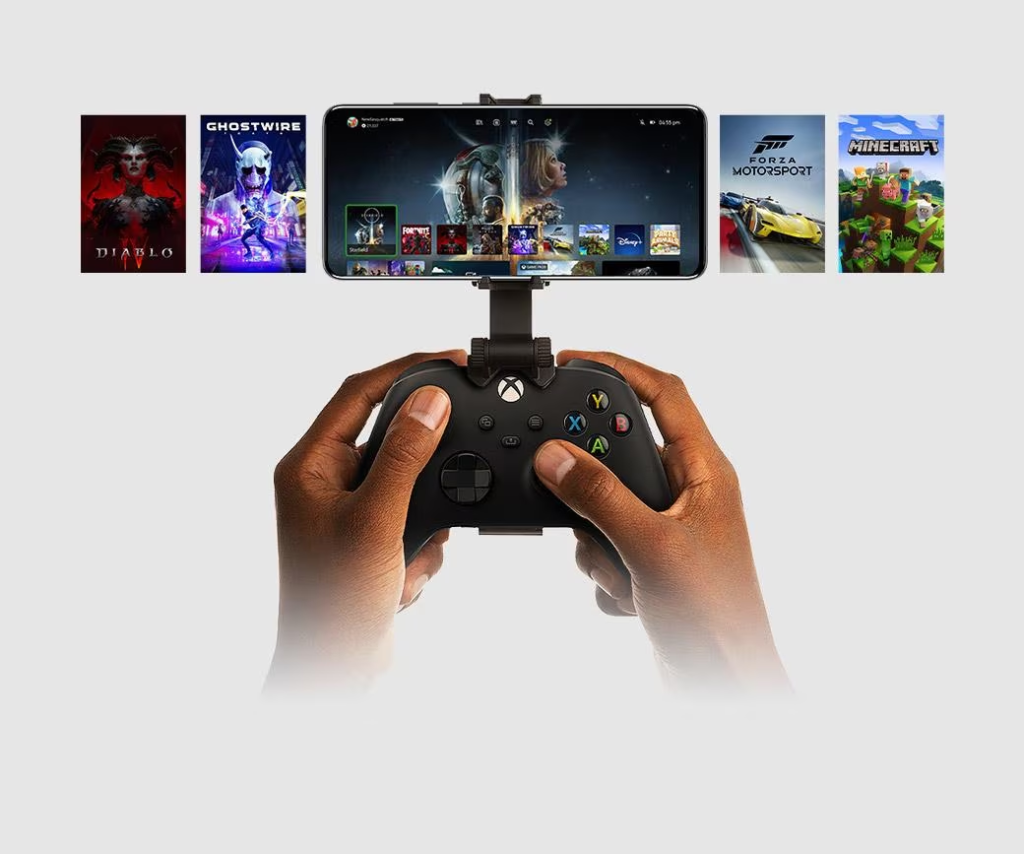Mobile gamers, rejoice! A new player is entering the arena, set to challenge the dominance of Google Play and Apple’s App Store. Buckle up, because Microsoft is launching its very own mobile game store, slated for a July release. This move signifies a significant shift in the mobile gaming industry, potentially paving the way for a more competitive and potentially more consumer-friendly environment.
Breaking Free from the App Store Monopoly:

The news, confirmed by Xbox boss Sarah Bond, comes as a welcome surprise for many gamers frustrated with the limitations imposed by the current app store giants. Both Apple and Google have long been criticized for their hefty commission fees, typically hovering around 30% of in-app purchases and sales. This not only eats into developer profits but can also translate into higher prices for consumers. Microsoft’s web-based store aims to disrupt this model by offering a lower fee structure, potentially leading to more affordable games and in-game items for players.
A Strategic Launch with Microsoft’s Powerhouse Titles:
The initial focus of the Microsoft mobile game store will be on showcasing the company’s own powerhouse titles. Think iconic franchises like Candy Crush Saga, a massive success story that Microsoft acquired in 2018. The inclusion of such established hits is a strategic move, allowing Microsoft to leverage its existing player base and build momentum for the new platform. The potential addition of Minecraft, another Microsoft-owned juggernaut, further strengthens the store’s appeal to a broad spectrum of mobile gamers.
Beyond First-Party Games: Embracing Third-Party Developers:

While the initial rollout prioritizes Microsoft’s own games, the long-term vision is clear – to create a vibrant ecosystem that welcomes third-party developers. Opening the store to external studios will significantly bolster its library, offering players a wider variety of games and genres to explore. This inclusivity could attract developers seeking a more favorable revenue share compared to the existing app store model.
Web-Based Accessibility: A Key Differentiator:
One of the most intriguing aspects of Microsoft’s game store is its web-based foundation. Unlike the app-dependent approach of Google Play and the App Store, Microsoft’s store will be accessible through any web browser, regardless of device or region. This eliminates potential obstacles related to app store restrictions or regional limitations, making it a potentially more universally accessible platform. The web-based format also aligns with the recent EU Digital Markets Act, which aims to promote a more open and competitive digital market landscape.
A New Era for Mobile Gaming – Building an Open Ecosystem:
Microsoft’s foray into the mobile game store market signifies a potential shift towards a more open and competitive environment. With lower fees on in-app purchases, a wider variety of games, and web-based accessibility, gamers have the potential to benefit from increased choice and potentially lower prices. Developers, on the other hand, could see improved revenue streams if the platform gains traction. The success of this venture will depend on Microsoft’s ability to attract a critical mass of both gamers and developers. However, this bold move undoubtedly paves the way for an exciting new era in mobile gaming, one that prioritizes user experience and fosters a more balanced digital marketplace.
Beyond the Launch: Potential Implications and Future Developments:

The launch of the Microsoft mobile game store is just the first step. Here are some additional points to consider:
- Competition: How will established giants like Google and Apple react? Will they adjust their pricing models or implement new features to retain their user base?
- User Adoption: Convincing gamers to switch platforms requires a compelling value proposition. Microsoft will need to effectively market the store and its benefits to attract a sizeable player base.
- Developer Support: Offering attractive developer tools, resources, and revenue-sharing models will be crucial for attracting and retaining third-party studios.
- Regulation: The EU’s Digital Markets Act is a significant factor in Microsoft’s strategy. How other regulatory bodies around the world respond to this trend could further influence the mobile gaming landscape.
Conclusion:
Microsoft’s entry into the mobile game store arena is a bold move that has the potential to reshape the industry. With its focus on lower fees, accessibility, and a potentially more open ecosystem, the platform offers promising benefits for both gamers and developers. While the long-term impact remains to be seen, one thing is certain – the mobile gaming landscape just got a whole lot more exciting, and consumers stand to reap the rewards.
See more games in the Game News section here.













